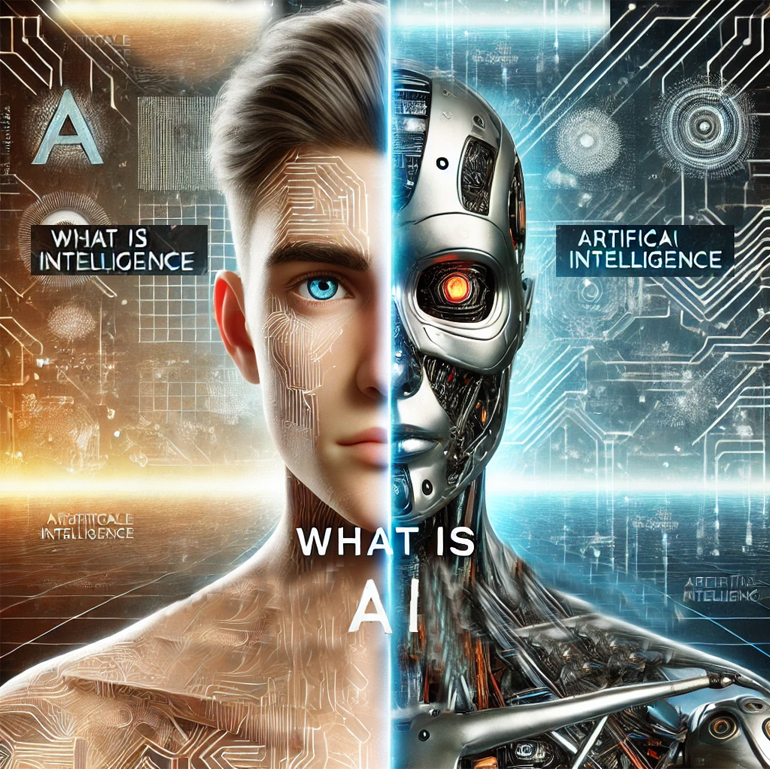Accessibility Tools

Increase Text

Increase Text

Artificial Intelligence (AI) is more than just a buzzword – it’s transforming the way we live and work. But what exactly is AI, and how does it benefit businesses and individuals?
In this blog post, we'll explore the basics of AI, its different types, and some of the key advantages it offers.
What is AI?
Types of AI
Key Benefits of AI
The Future of AI
AI, or Artificial Intelligence, refers to the simulation of human intelligence by machines, especially computers. These systems are designed to perform tasks that typically require human intelligence, such as problem-solving, decision-making, speech recognition, and visual perception.
At its core, AI leverages large amounts of data and powerful algorithms to enable machines to learn from patterns and make decisions, often faster and more accurately than humans.
There are three main types of AI, each with varying levels of complexity:
Artificial Narrow Intelligence (ANI): This is also known as weak AI. It’s designed to handle a specific task, like facial recognition or language translation, but it cannot function outside of its set task.
Artificial General Intelligence (AGI): This is strong AI. AGI can perform any intellectual task a human can do. While we’re not quite there yet, AGI is the vision of the future for AI development.
Artificial Superintelligence (ASI): ASI surpasses human intelligence, and while it’s still theoretical, it represents AI that can perform tasks beyond the capabilities of the human brain.
AI is transforming industries and bringing numerous benefits across various sectors. Let’s explore some of the most impactful advantages AI offers:
Increased Efficiency and Productivity
AI can automate repetitive tasks, allowing humans to focus on higher-value activities. Whether it’s automating data entry, streamlining customer service with chatbots, or optimizing supply chains, AI enables faster and more accurate work.
Improved Decision Making
By analyzing large sets of data and identifying patterns, AI provides insights that help businesses make informed decisions. AI-powered tools can predict trends, suggest marketing strategies, or recommend products based on consumer behavior.
Enhanced Customer Experience
AI-driven chatbots, virtual assistants, and recommendation engines offer personalized services to customers 24/7. These tools improve customer satisfaction and help businesses provide seamless user experiences without human intervention.
Cost Savings
Through automation, AI reduces the need for manual labor and minimizes errors, leading to cost reductions. Businesses can lower operationa
Healthcare Advancements
In healthcare, AI is driving breakthroughs in diagnosis, treatment, and patient care. From AI-powered imaging that helps detect disea
Safety and Risk Management
AI plays a vital role in industries like manufacturing and transportation, where it can predict equipment failures, optimize maintenance schedules, and ensure safer working conditions. AI systems can also monitor for cybersecurity threats, ensuring data protection.
AI is constantly evolving, with innovations happening at an unprecedented pace. As AI technologies become more advanced, they will likely reshape how we work, interact, and even think. While there are concerns about the ethical implications of AI, its potential to improve quality of life and create new opportunities is undeniable.
Artificial Intelligence is here to stay, and its benefits are already impacting businesses and consumers alike. From improving efficiency to enhancing decision-making, AI has the potential to revolutionize every industry. As AI continues to advance, it’s important for us to understand its capabilities and harness its power responsibly for a better future.
